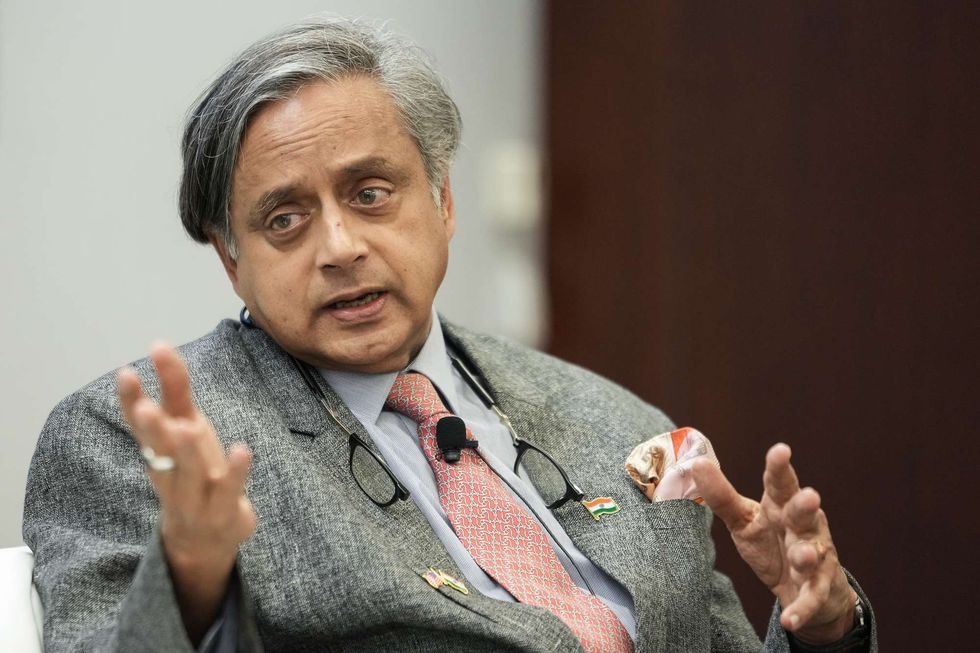By Amit Roy
WHAT a civilised country Britain is becomes apparent from the tale of Jan Morris, the travel writer, who died last Friday (20), aged 94, at her home in Wales.
Jan was famous for two events in a varied and colourful life. She was born James Morris but had surgery at a clinic in Casablanca in 1972 which saw him “transition from male to female” and thereafter become Jan.
James and his wife, Elizabeth, with whom he had five children, were forced to divorce, but continued to live together as a devoted couple after he became Jan.
Elizabeth was very sympathetic to her husband’s sexual orientation. The couple had a civil ceremony in 2008 when this became legally possible.
The sex change did not affect Jan’s standing in the literary world. In all, she wrote 40 mostly travel books, but also a sympathetic account of the British empire, Pax Britannica.
The other event was the world scoop that James secured for the Times when he was a 27-year-old reporter sent by the paper to cover the British Mount Everest Expedition of 1953 led by Col John Hunt. James, the only reporter embedded with the expedition, climbed to base camp at 22,000 ft when he got the news that New Zealander Edmund Hillary and Nepalese Sherpa Tensing Norgay had set foot on the highest point on earth.
Now, he had the job of getting his story back to the Times newsdesk in London without letting rival papers have a whiff of the story. He sent a coded message which was understood by his paper: “Snow conditions bad. Advance base abandoned yesterday. Awaiting improvement. All well!”
Had it not been for the help and encouragement given by Mike Westmacott, another expedition member, James reckoned he would have perished on the perilous descent.
“I guess I would certainly have died, I’m sure,” he told the BBC many years later.
The story was held back so that it could appear on June 2, 1953, to coincide with the coronation that day of Queen Elizabeth II at Westminster Abbey.
The story was published without a byline on page six because the front page was reserved for advertisements.
It was headlined: “Everest Conquered. Hillary and Tensing Reach the Summit.”
The intro read: “A message was received by the Times last night from the British Mount Everest Expedition, 1953, that EP Hillary and the Sherpa Tensing Bhutia reached the summit of the mountain, 29,002ft high, on May 29. The message added: ‘All is well.’”
On India, Jan once wrote: “I have had nothing but kindness in the cities of India, the odd robbery apart, although I never was an admirer of the Indian civilizations, their multiplicity of gods and dogmas, the gaudy elaboration of their architectures.
“My heart used to sink when I was debouched into the tumultuous streets of yet another immemorial capital, or confronted by the rituals of another holy shrine. This is because I was always there specifically in search of a single brief period among the countless successive layers of Indian history – the period of the British Raj.
“It was the bungalows, the clubs, the cricket pavilions, the commissioner's offices, the barrack blocks, the steepled churches, the pompous hotels, the drains, canals and railway stations of imperialism that I was after, not your temples, ghats and maharajas’ palaces.
“Where are they all now, when I go back to India, having spent 10 years writing about that lost dominion? The mighty Viceroy’s House in Delhi is mighty as ever, as the residence of India’s president. The cricket grounds are livelier and more crowded than ever they were.
“The ever-kindly Indian people display no resentment, as they show me a half-crumbled bungalow, or direct me to the remains of a long-besieged Residency.
“And even in Mumbai, Kolkata or Varanasi beside the Ganga river, they only smile tolerantly if I talk about Bombay, Calcutta, or Benares on the Ganges.”





 Shashi Tharoor
Shashi Tharoor Nicolás Maduro arriving at the Down town Manhattan Heliport.
Nicolás Maduro arriving at the Down town Manhattan Heliport.





